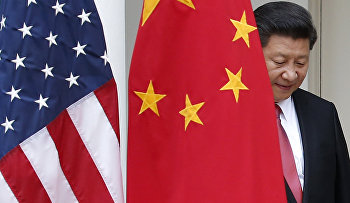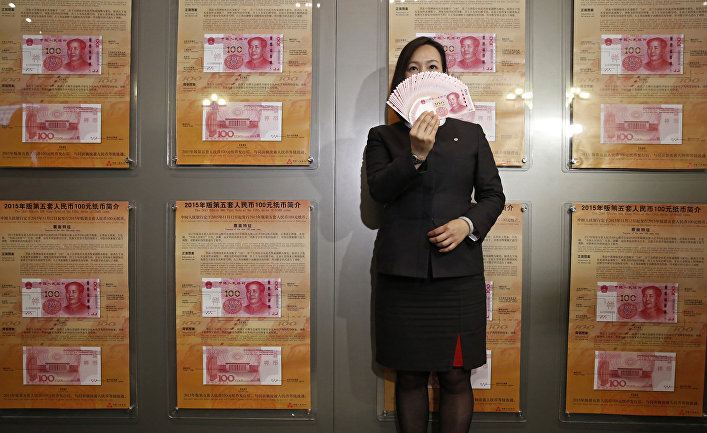If an expected positive decision is made, starting from October 1, 2016 the yuan will officially lift its global profile. IMF staff members determined that the yuan meets the requirement of being the reserve currency, IMF Managing Director Christine Lagarde said in a statement. Some countries, such as France and Britain, have already backed the inclusion of the yuan in the SDR basket, Reuters reported citing the US Treasury representative and Washington officials. Yet the US always declared it support of the yuan, given that it meets the reserve currency standards.
China has long sought to give its currency more global weight — first as payment facility, and then as an official reserve currency.
Currency analysts estimate Central Banks demand for the yuan at around half a trillion dollars, according to Reuters. However, since last year the global foreign exchange reserves declined sharply. Therefore, the yuan inclusion in the list of reserve currencies, now consisting of the US dollar, euro, UK pound sterling, and yen, will help rectify its imbalance. Of course, the USD's absolute domination is in no danger, but the appearance of the fifth reserve currency, given the size of China's economy, can be a serious threat to US hegemony in the global financial system. In the 1990s, before the arrival of the euro, it accounted for 71% of allocated reserves, and it's only 64% now.
My latest RT interview – Gold-Backed Yuan Could Ultimately Replace USD as Reserve Currency @SchiffGold https://t.co/zk81BfFIXr
— Peter Schiff (@PeterSchiff) November 18, 2015
In view of the turmoil in the European economy, the euro's share of the worldwide currency reserve basket dropped from 27.6% in 2009 to 20.5% this year. Over decades, in the dreams of its inventors, it was supposed to reach parity with the dollar and become the global counterweight to the US financial hegemony. However, Europe's deep debt crisis has messed up the contract of inventors of euro.
Mainly the current situation on the european market and weakness of the euro, not the US dollar, makes the inclusion of yuan in the basket of reserve currencies possible.
The yuan has been gaining weight in the international economy for some time now. According to the SWIFT survey in August, it surpassed the Japanese yen and became the fourth largest payment currency, which accounts for 2.8% of global payments. This, incidentally, is not that much taking into account the size of the Chinese economy. However, the growth rate of the yuan market share in the global payment system is impressive, comparing to only 0.8% in 2012.
However, late summer tumultuous events on China's stock market showed that the yuan is still very vulnerable. In September study SWIFT analysts noted that it dropped to fifth place and its share in the global payments fell to 2.5%. Now it is bested by the dollar (43.3%), the euro (28.6%), British pound (9%), and the yen (2.9%).

Of course, over time the yuan will surpass the UK pound and will become the third most traded currency. However, no financier now can predict the day when it challenges the US dollar. We all have witnessed the euro case with its attempts to compete with the dollar and the upshot of it. Of course, there is a risk of a serious financial shock in both the US and China, similar to the Eurozone debt crisis. Both America and China are under threat of foreign debts. However, it's impossible to forecast in what country the bubble bursts first.
The official inclusion of the renminbi, the official currency of the People's Republic of China to the basket of reserve currencies will be seen in China as a victory of the country's financial reformers. One of them is Zhou Xiaochuan, the governor of the People's Bank of China, who has previously worked as an economist at the IMF. The inclusion of the yuan in the SDR basket will help them continue financial and economic reforms in China.






